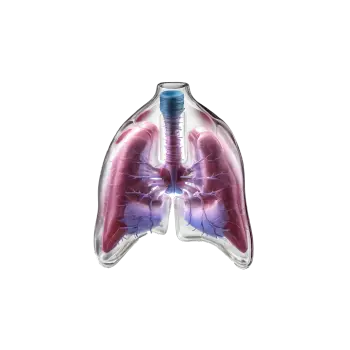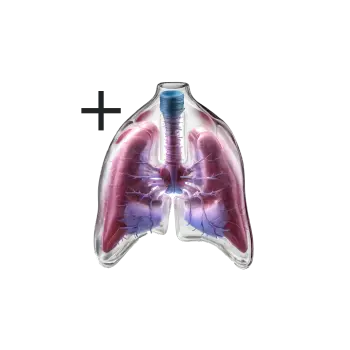Thyroid problems can be caused by hypothyroidism and hyperthyroidism - here are the differences
Hypothyroidism and hyperthyroidism are two different conditions that affect the thyroid gland in different ways. Hypothyroidism means an underproduction of hormones, while hyperthyroidism means an overproduction of hormones. The symptoms and consequences of these conditions can be very different.
In hypothyroidism, the body's metabolism is slower than normal, which can lead to fatigue, weight gain and constipation. In hyperthyroidism, the metabolism is faster than normal, which can result in weight loss, palpitations and diarrhoea.
Although hypothyroidism and hyperthyroidism have different symptoms and causes, treatment for both conditions is focused on balancing the thyroid hormones and restoring normal function in the body.
Hypothyroidism – underproduction of thyroid hormone
Hypothyroidism is a condition where the thyroid gland does not produce enough hormones to regulate the body's metabolism. It is about ten times more common in women than in men and can develop gradually over a long period of time.
Symptoms of hypothyroidism
The symptoms of hypothyroidism can be diffuse and vary from person to person. At first, you may feel tired and lack energy, have difficulty concentrating and feel depressed. Other common symptoms include weight gain, feeling cold, constipation, dry skin and hair loss. Hypothyroidism can also affect the menstrual cycle and make it difficult to get pregnant.
The most common cause of hypothyroidism is an autoimmune disease called Hashimoto's disease. This means that the body's immune system attacks and damages the thyroid gland, leading to a reduced production of hormones. Other causes can be iodine deficiency, radiotherapy or surgery on the thyroid gland.
Treatment for hypothyroidism usually involves taking thyroid hormone tablets to replace the missing hormones. This treatment is usually lifelong and aims to relieve the symptoms and restore a normal metabolism.
Hyperthyroidism – overproduction of thyroid hormone
Hyperthyroidism is the opposite of hypothyroidism and involves an overproduction of thyroid hormones. This condition is also more common in women than in men and can have a range of different symptoms and consequences.
Symptoms of hyperthyroidism
The symptoms of hyperthyroidism can be more acute and intense than in hypothyroidism. You may experience that you sweat more than usual and feel hot, have difficulty sleeping and feel constantly tired. Other common symptoms include heart palpitations, hand tremors, weight loss despite eating normally or more, diarrhea and skin problems.
Hyperthyroidism can also affect mental functions and give rise to feelings of restlessness, worry and anxiety. It can also cause eye problems, such as dry, red or watery eyes, double vision and a protruding gaze.
The most common cause of hyperthyroidism is an autoimmune disease called Graves' disease. This disease causes the immune system to stimulate the thyroid gland to produce too many hormones. Other causes can be inflammation of the thyroid gland or a toxic nodular goiter.
Treatment for hyperthyroidism can vary depending on the cause and severity of the condition. It may include medication to block the production of hormones, radioactive iodine treatment to reduce thyroid activity, or surgery to remove parts of the thyroid gland.
SummaryHypothyroidism and hyperthyroidism are two common thyroid disorders that can affect your health and well-being. Hypothyroidism involves an underproduction of thyroid hormones and can lead to symptoms such as fatigue, weight gain and constipation. Hyperthyroidism, on the other hand, involves an overproduction of hormones and can cause symptoms such as palpitations, weight loss and diarrhea.
It is important to consult a doctor if you suspect you have any form of thyroid disease, as early diagnosis and treatment can be crucial in alleviating symptoms and preventing complications. A doctor, after carrying out tests and examinations, can help establish an accurate diagnosis and design an individual treatment plan for your needs.
By being aware of your thyroid health, you can take control of your well-being and live an active and healthy life.























